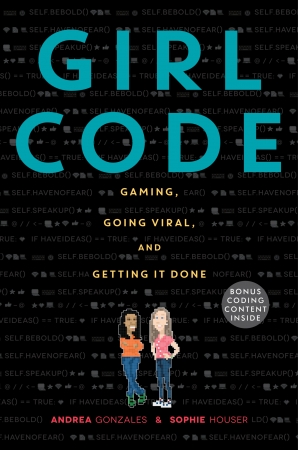...They were all boy, huddled around computers and talking to each other, playing video games on their DSs. The room seemed like a totally different universe. Anxiously, I scanned the room for people without a Y chromosome. There were two... but they were staff members. I had heard there weren't a lot of girls in STEM (science, technology, engineering, and mathematics), but I didn't understand how bad it was. That's why they put my dad's name down as the camper--because he's the guy. I sat down, a bit regretful about my decision to come here. I felt out of place.
A few years ago, my student Annie made a video game for a project on The Odyssey. It was a rudimentary side-scrolling game like I used to play on Nintendo, and you played as Odysseus, fending off the dangerous sexuality of wily seductresses. (It was a statement about the gender politics of the epic, which are, like the book itself, three thousand years out of date.) Years later, with a friend at a coding camp, she repurposed that game into one about the taboo against menstruation, called Tampon Run. It went, as the kids say, "viral"--suddenly she and her partner were fielding interview requests from radio stations, blogs, Time Magazine, you name it.
 |
| Stoic yes, curt maybe--but howling? |
Girl Code is the story of the game's creation, and the pair's subsequent fame. It's part lighthearted memoir, with Annie and Sophie trading chapters about the bewildering experience of becoming famous. Tampon Run brought invitations to hackathons and Silicon Valley startups, but also at least one sexist radio interview. That's the other part: a treatise about the low visibility of women in tech fields, experienced through the eyes of two young coders experiencing it for the first time. Annie talks about her desire to use coding to bring awareness to women's issues like the menstrual taboo, but how can that be possible in a world that doesn't yet know how to take women seriously? The tone wavers between humorous (Annie's one of the funniest kids I've known, and it shows) and inspirational, but the stark realities of the tech worlds just that lurk at the edges of the book's perception are serious and real. But more than humor and inspiration, the book provides practical assistance to attack the problems it identifies: an appendix about basic coding for young readers.
If Annie reads this review (if I wrote a book, I'm pretty sure I'd be googling it daily) I express, once again, my pride and admiration. Girl Code is a testament to her and Sophie's intelligence, chutzpah, and character. Can't wait to see what she does next.


1 comment:
This sounds right up my alley. I'm going to pick it up.The issues women face in programming are no joke-it's really cool to see the next generation facing them head-on.
Post a Comment